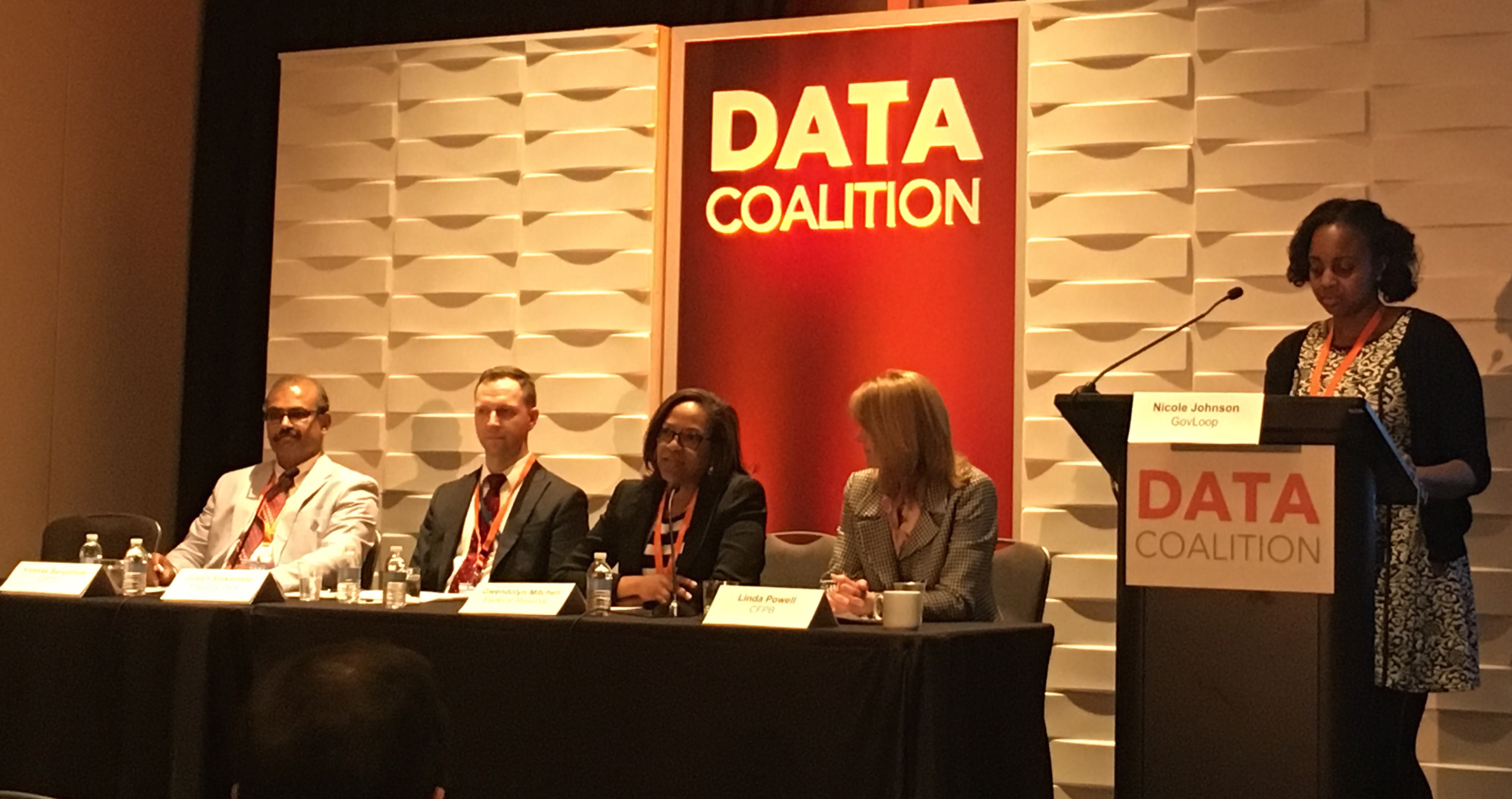This week, GovLoop’s very own Nicole Blake Johnson moderated a panel discussion at the Data Coalition’s Financial Data Summit in Washington, D.C. The esteemed panelists included:
- Srinivas Bangarbale, Chief Data Officer, Commodity Futures Trading Commission
- Gwendolyn Mitchell, Manager, Metadata and Taxonomy Operations, Federal Reserve
- Justin Stekervetz, Associate Director of Strategy and Standards, Office of Financial Research, Treasury Department
- Linda Powell, Chief Data Officer, Consumer Financial Protection Bureau
The event brought together data standards advocates and leaders from across the financial and regulatory community because of one common belief and purpose: that data standards make the world better. (check out #FinDataSummit for tweets from the event)
You may be thinking – why should I care? I don’t work in finance.
But what you may not know is that financial regulations and standards affect almost every industry. And the changes that the field is working toward are not all that different from the challenges that any field pushing for modernization and improvement face.
First off, let’s talk a little about the benefits of having global financial data standards.
Common identifiers let everyone speak the same language and easily and quickly understand data across the board. Making data searchable enables transparency and enables both government and citizens to make better decisions about investments. It sounds great (like most modernization projects) right?
But even though there is agreement on the benefits of standardization, there are universal steps that have to be taken to put it into action.
- Changing policy: The proposed Financial Transparency Act (H.R. 2477) will require financial agencies to adopt standardized fields and formats across all the information they collect. This act, like most, will put forth timeline goals for modernization and to get everyone to work together.
- Knowledge sharing: With common definitions and new policy, everyone can speak the same language. But silos have to be broken down and there have to be places where these agencies can come together to share advancements and challenges. Knowledge sharing helps change move faster because it should decrease duplicative efforts and mistakes.
- Change management: Change is hard, especially when there are so many people and entities involved. Changing the culture is oftentimes the hardest part and requires a dedicated effort.
The final question for the panelists was to finish the sentence: Financial data standards should be… and their responses perfectly wrapped up the purpose of the entire summit.
Financial data standards should be: global, mandatory, collaborative, aligned, facilitate communications, thoughtful and useful.
Are you working in a field that is undergoing modernization? What challenges are you facing?





My 2010 presentation at the National Press Club on the need for Common Identifiers can be found here: http://ssrn.com/abstract=1728882
My 2011 Brookings Institution paper on the same subject can be found here:
http://www.brookings.edu/papers/2011/12_information_sharing_snider.aspx
My related 2009 Education Week article (which I shared with Hudson when he was an Issa staffer) can be found here:
http://www.edweek.org/ew/articles/2009/05/20/32snider.h28.html
J.H. Snider, President
iSolon.org